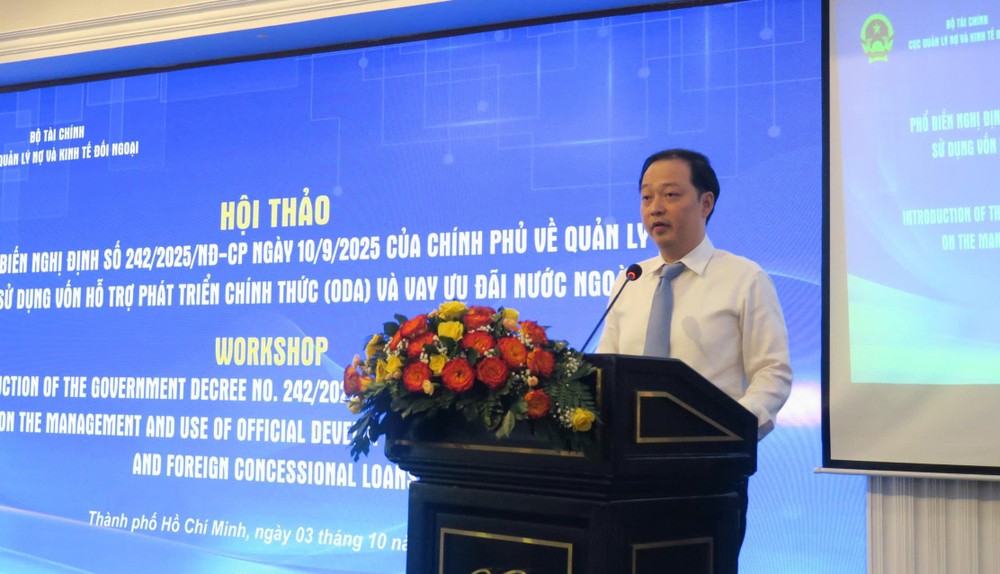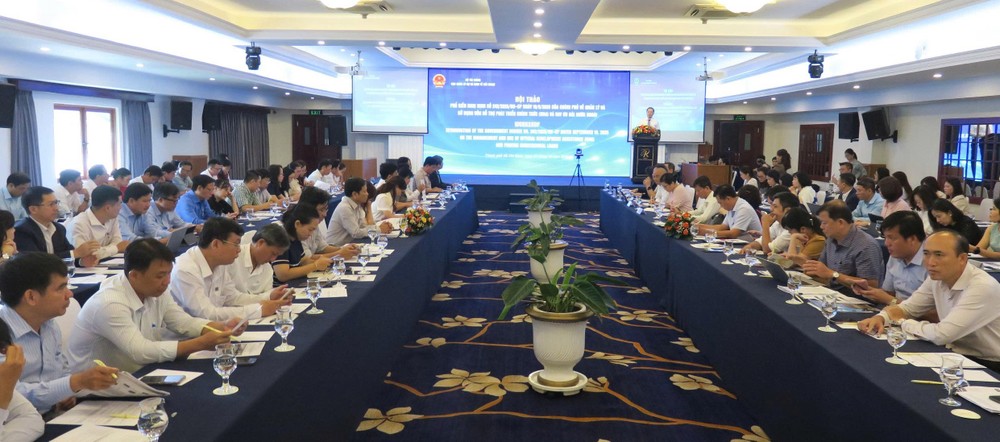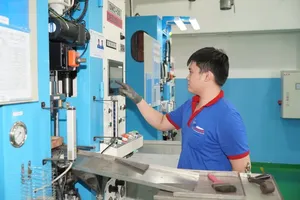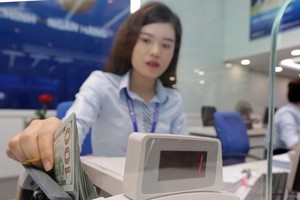
The Ministry of Finance convened a workshop to disseminate Decree No.242/2025 on the management and use of Official Development Assistance (ODA) and concessional foreign loans for the Central, Central Highlands, and Southern regions, on October 3 in Ho Chi Minh City.
Speaking at the event, Mr. Nguyen Quoc Phuong, Director General of the Department of Debt Management and Foreign Economic Relations, emphasized that over the past three decades, ODA and concessional loans have played a pivotal role in Vietnam’s socio-economic development. He highlighted landmark projects—such as the Central Highlands Poverty Reduction Program, Can Tho and My Thuan bridges, the HCMC Environmental Improvement Project, the Ben Thanh–Suoi Tien Metro Line, and expressways like Ben Luc–Long Thanh and Long Thanh–Dau Giay—that were made possible by ODA, leaving transformative impacts across the Central region, Central Highlands, Mekong Delta, and major Southern cities.
“Despite these achievements, mobilizing, managing, and utilizing ODA has faced shortcomings—complex procedures, sluggish disbursement, inconsistent coordination among agencies, and overlapping mechanisms causing difficulties for project owners and local authorities,” Mr. Nguyen Quoc Phuong admitted, adding that no new ODA projects have been initiated since 2017.

He underscored that with Vietnam’s ambitious growth target of at least 8 percent in 2025 and double digits in subsequent years, the demand for development capital—particularly for transformative infrastructure and climate adaptation projects—is immense. Notable examples include a nearly US$500 million climate resilience and integrated transition project in the Mekong Delta and a $315 million World Bank-financed program for one million hectares of rice cultivation.
Against this backdrop, Decree 242 introduces major reforms designed to simplify procedures, reduce project preparation timelines, and expand decentralization—from approving investment policies and project implementation to managing surplus capital. The decree also clarifies the legal framework for State-owned enterprises using ODA and concessional loans.
Crucially, for the first time, the private sector is eligible to access ODA and concessional financing. Priority areas now include projects in science and technology, innovation, digital transformation, and special public investment initiatives.
Another significant change is in the approval hierarchy: while the Prime Minister previously had to approve major investment policies—including hazardous chemical and explosive production projects and large-scale projects exceeding VND1 trillion—under the new rules, the Prime Minister will only decide on nuclear power projects. Investment decisions for ODA projects of all scales in categories A, B, and C are now delegated to heads of ministries and central agencies. For projects spanning two provinces, the provincial People’s Committees will jointly assign one provincial authority to oversee implementation. Adjustment procedures for investment policies have also been simplified.
Mr. Nguyen Duc Nghia, Head of Multilateral Debt Management at the Department of Debt Management and Foreign Economic Relations, noted that these reforms mark a decisive step toward transparency, efficiency, and mobilization of international resources for Vietnam’s sustainable development in the coming phase.
























